SERMONS
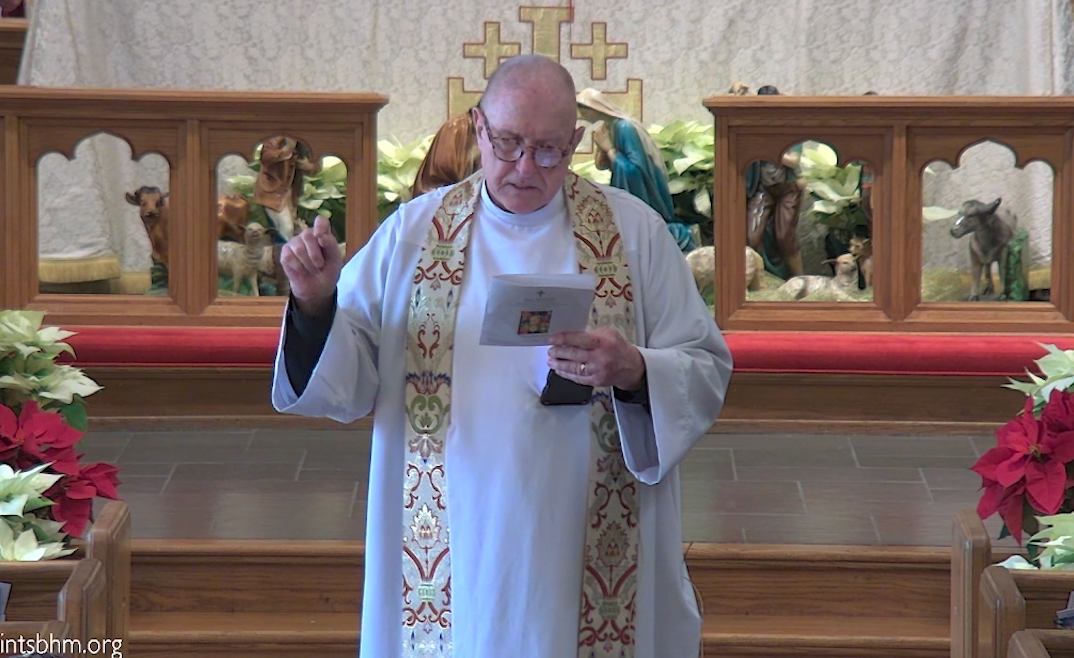
"Your Life, a Watered Garden" Sermon by The Rev. Ed Bacon January 4, 2026 This sermon invites us to choose a word or image to carry into the new year, shaped by grief, hope, and deep listening. I reflect on a vision of God not as a judge, but as a faithful gardener who keeps us watered with grace, forgiveness, and compassion. Drawing from Jeremiah, personal stories, and voices shaped by religious trauma, the message reminds us that we are not broken at our core, but full of grace. As we step into 2026, we do so as beautifully weird, deeply connected people, rooted in love and always held by a God who is on our side.
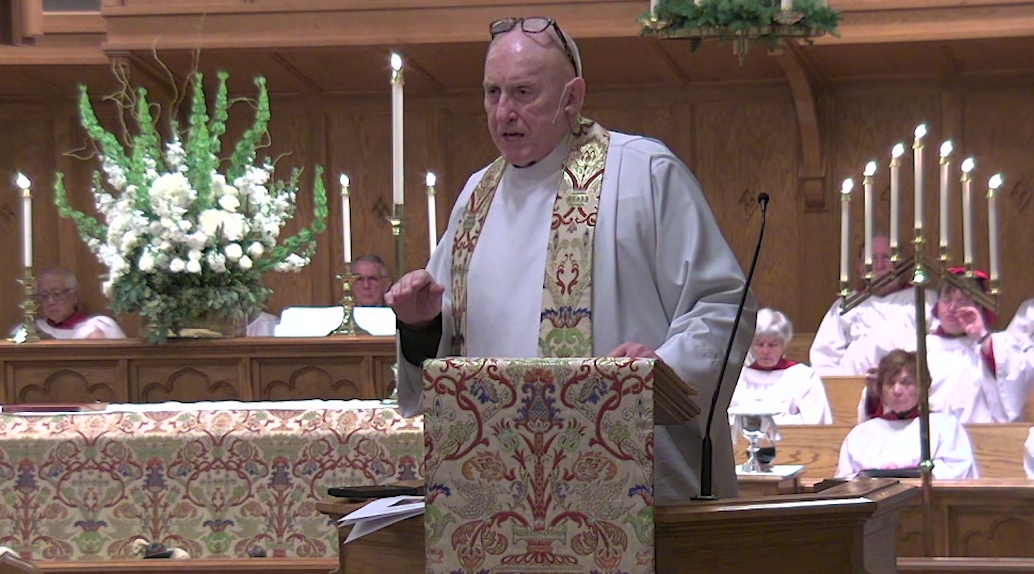
"The God Baby Jesus Gave Us and Gives Us" Sermon by The Rev. Ed Bacon Dec. 24, 2025 This sermon reflects on how certain moments quietly change us, marking a clear before and after in our lives. Drawing from stories of trauma, tenderness, and hope, it points to a God who heals not through judgment but through deep compassion and cherished belonging. Christmas, then, is not just about a baby in a manger, but about a God who reaches toward us, sees us fully, and invites us to live into the truth of who we are. In that love, we are called to become places of healing for others too.
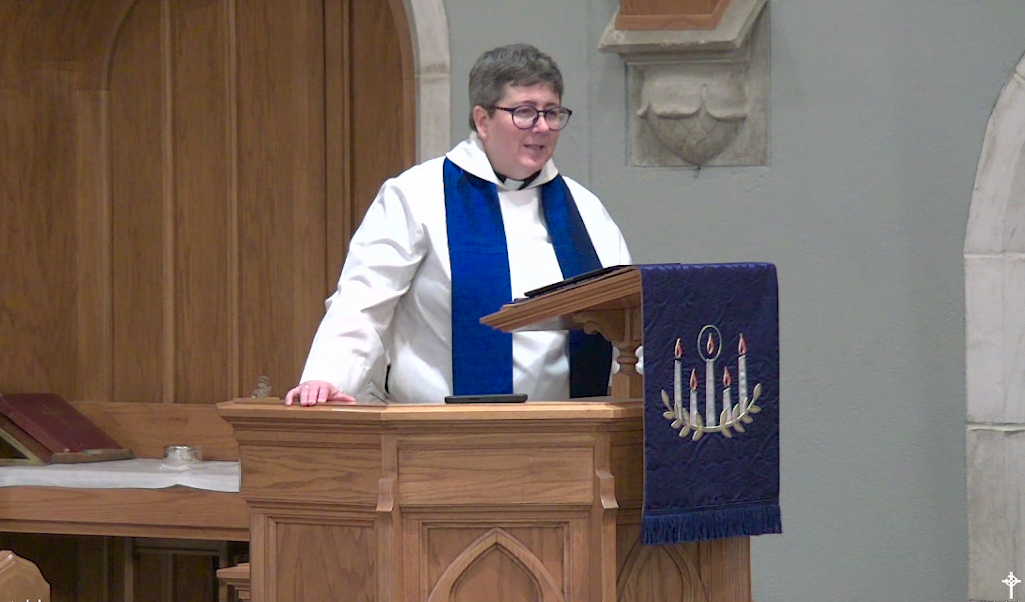
"Merry Christmas or Bah Humbug" Sermon by The Rev. Kelley Hudlow Dec. 21, 2025 On the longest night of the year, this sermon invites us to notice where we are on the Christmas spectrum, from full joy to quiet weariness. Matthew’s telling of the Christmas story shifts our focus away from the manger and toward Joseph, whose compassion and trust open the way for a new creation. This is not a story about a Savior who works for us or agrees with us, but about Emmanuel, God choosing to be with us in ordinary life. Even in darkness, that steady presence is the light we need most.
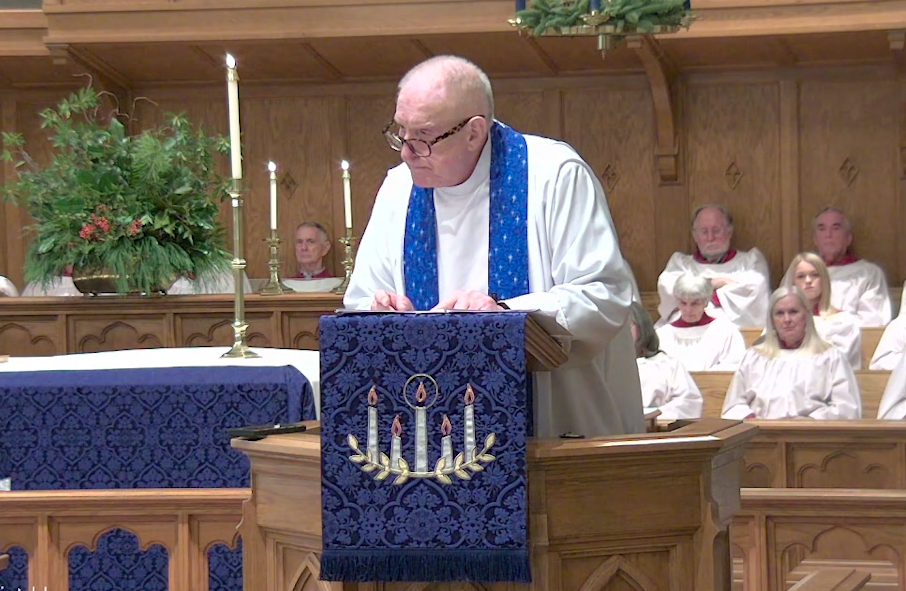
"Accessing Our Inner Light In Times of Darkness" Sermon by The Rev. Ed Bacon Dec. 7, 2025 Advent invites us to be honest about the darkness in our world and in our own lives, and to ask whether the dark can ever really overcome the light. This sermon talks about three advents: the birth of Jesus long ago, Christ’s coming at the end of time, and the “interior advent” where God’s light is born in us right now. He shares the story of a mother from Newtown who, in her grief, clings to the truth that there is within her an “invincible summer,” a divine light that cannot be put out. That same light lives in each of us, he says, and we learn to trust it through stillness, love, and daily choices to let our light shine in a hurting world.
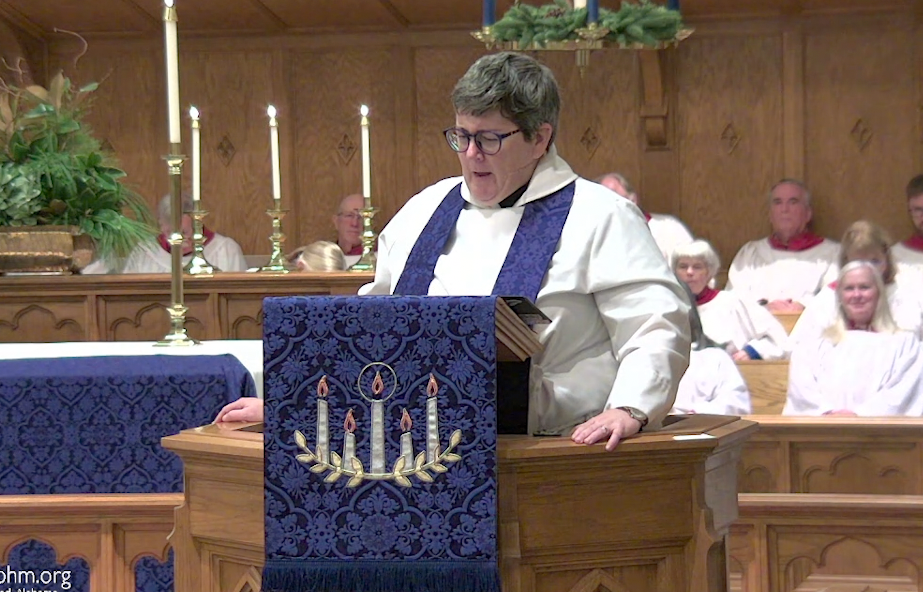
"Knowing What Time It Is" Sermon by The Rev. Kelley Hudlow Nov. 30, 2025 This sermon invites us to pause at the start of Advent and pay attention to the kind of time we’re living in. While our days are packed with schedules and smart devices telling us where to be, Advent calls us to something deeper, God’s time, where creation, Christ, and our own lives all fit into a much bigger story. We’re reminded that we don’t need every answer or plan in place; instead, we’re invited to stay awake, stay ready, and live as though God’s light is already breaking in. In this season, our calling is simple and steady: prepare our hearts, care for others, and step into the hope that is already drawing near.
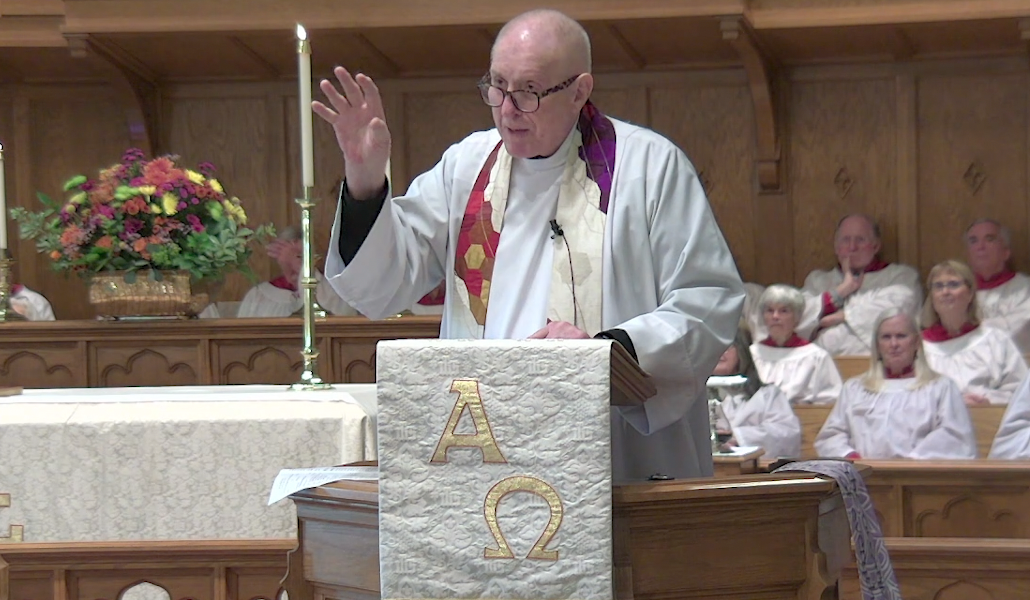
"Love is Our Map and Our Power" Sermon by The Rev. Ed Bacon Nov. 23, 2025 This week’s message invites us to rest in a simple but profound truth: love is the force that holds everything together. Through a personal story of chaos giving way to peace, we see how one quiet prayer can reorder a life from the inside out. As we turn toward a new liturgical year, we’re reminded that Christ’s love is not just an idea, but the living center that shapes how we see ourselves, how we see others, and how we move through the world.
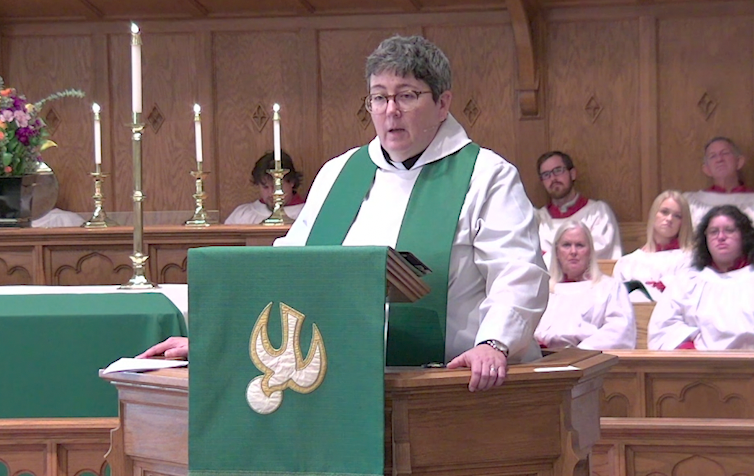
"Nerdy Christian Hope" Sermon by The Rev. Kelley Hudlow Nov. 16, 2025 This sermon reflects on how Scripture invites us to read, learn, and truly take in God’s word so we can understand the world around us. It connects the themes of speculative fiction, especially Afrofuturism, with Jesus’ teachings about imagining a future shaped by God rather than fear. The preacher explains how both dystopian warnings and utopian visions can wake us up and guide us toward a better tomorrow. In the end, we are reminded that God calls each of us to trust, testify, and help build a world where everyone has enough.
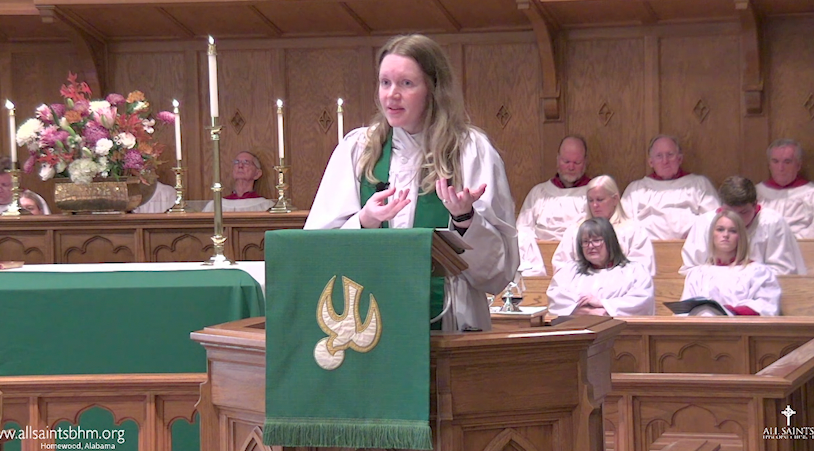
"What We Hold Tight" Sermon by The Rev. Ranie Neislar Nov. 9, 2025 I love tradition, the comfort of doing what has been passed down through generations. I remember our yearly trip to Jack’s Tree Farm and how hard it was when my parents suggested a change. Like the Sadducees, I sometimes hold too tightly to the form instead of the heart of it. Jesus reminds me that love is the core, not the ritual. When I let go and follow God’s creative spirit, I see that tradition can evolve and still hold the same love and meaning at its center.
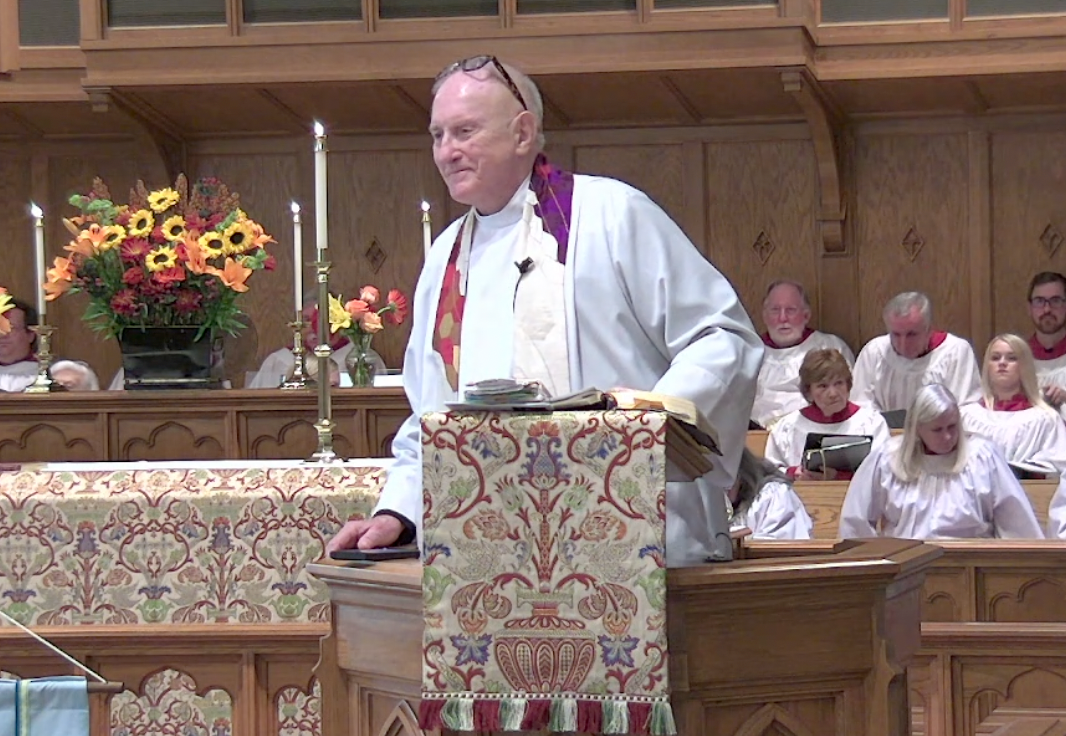
"I Am Because We Are" Sermon by The Rev. Ed Bacon Nov. 2, 2025 It is All Saints Sunday, a time to remember those who live on in our hearts—parents, friends, teachers, and saints like Desmond Tutu and Martin Luther King Jr. We are surrounded by a great cloud of witnesses who remind us that “I am because we are,” bound together in the interrelated structure of reality where no one stands alone. Life is changed, not ended, and the energy of those who came before still lives within us. As three children are baptized into this communion of grace and love, we celebrate that the saints past, present, and future are one.
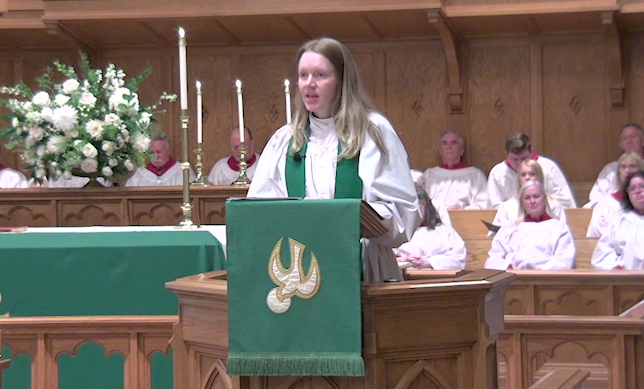
"Invitation to Pilgrimage" Sermon by The Rev. Ranie Neislar October 26, 2025 I'm about to tell you a story; I am a child of God, a wife and a mother and a priest in God's church, and I seek to soothe my own inadequacies by looking down on others; it's part of who I am a sinner." "Instead of sinners and sin, let us be pilgrims navigating our search for a rich spiritual experience, because God celebrates pilgrims, and humility is the road map for our adventures as pilgrims." "In humility, let us wonder at our own shortcomings with grace, make a gentle space within yourself to wonder, and we will watch our community become God's dream.
